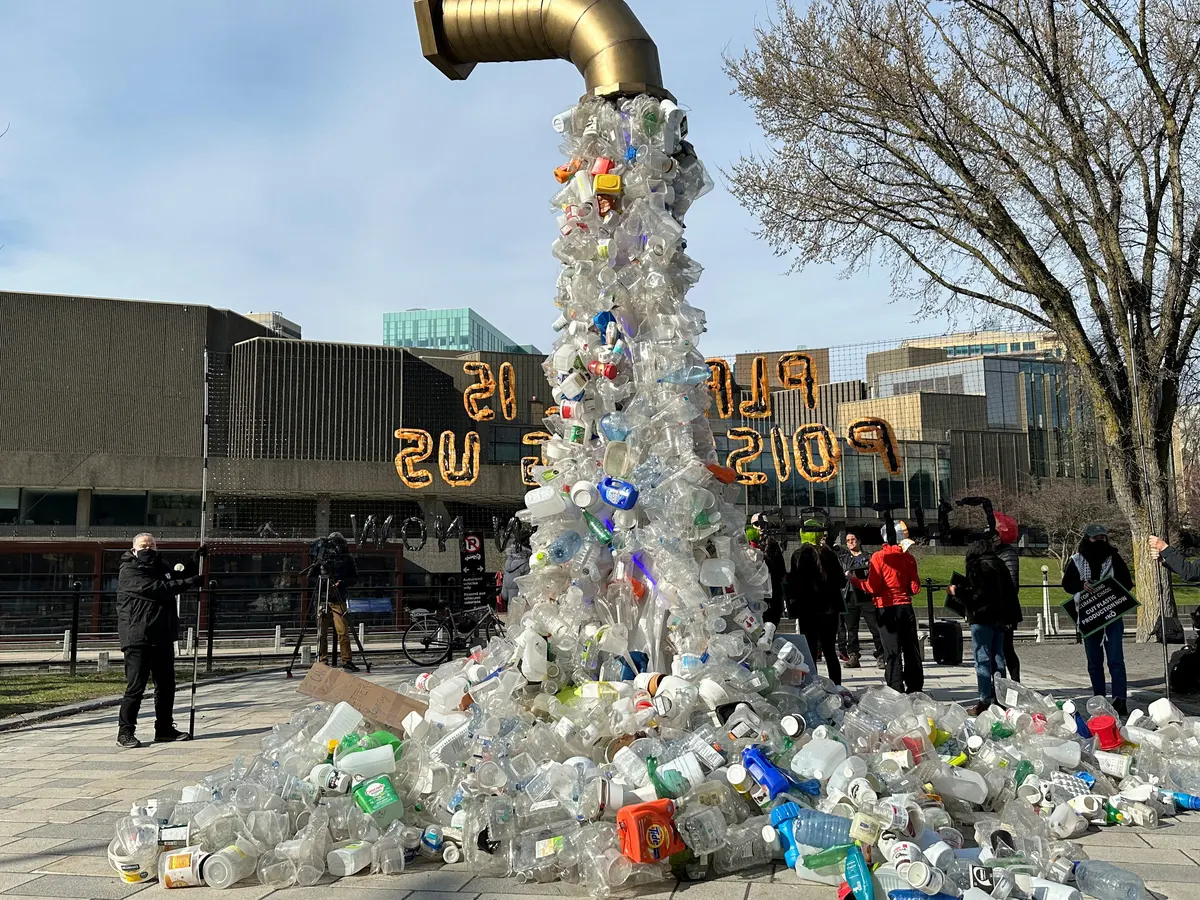Environmental campaigners are pointing fingers at developed nations for caving to pressure from fossil fuel and industry lobbyists, which has resulted in a slowdown in progress towards the first global treaty aimed at reducing plastic waste.
After talks concluded in Ottawa, Canada, late on Monday, delegates failed to reach an agreement on a proposal for global reductions in the $712 billion plastic production industry by 2040, aimed at tackling both plastic waste and significant carbon emissions.
Instead, they agreed to engage in further discussions before the final summit on the treaty, scheduled for November in Busan, South Korea.
Despite a historic agreement in Nairobi two years ago to establish a global treaty to cut plastic waste, delegates are lamenting the lack of tangible progress, with campaigners accusing countries of merely wasting time.
A proposal from Peru and Rwanda, which sought to address the scale of plastic production for the first time in order to reduce waste, garnered support from 29 countries, including Australia, Denmark, Nigeria, Portugal, the Netherlands, and Rwanda. These nations signed a declaration dubbed “the Bridge to Busan,” urging all delegates to prioritize addressing plastic production.
However, notably absent from supporting the proposal were the UK and US.
Juliet Kabera, director general of the Rwanda Environment Management Authority, emphasized Rwanda’s vision for the treaty to achieve sustainable production of plastics, stressing the need for a global target based on scientific measurements to gauge collective actions.
Yet, despite calls to put plastic production at the heart of the treaty, talks in Ottawa failed to reach a consensus on this crucial aspect.
David Azoulay, director of environmental health at the Center for International Environmental Law (CIEL), expressed disappointment that while some countries advocated for ambitious proposals to be kept alive, many ultimately settled for a compromise at the eleventh hour, bowing to pressure from petrostates and industry influencers.
Azoulay lamented the failure to address the production of primary plastic polymers, which he believes is essential for the treaty to fulfill its intended purpose.
Criticism was particularly directed at the United States for obstructing talks on reducing plastic production. Carroll Muffett, president of CIEL, called out the US for not living up to its leadership role and for disregarding the health, rights, and lives of its own citizens by ignoring plastic production in favor of the interests of oil and gas exporters.
Despite signaling a commitment to reducing plastic production at the recent G7 summit, the US failed to follow through on its promises during the Ottawa talks.















































